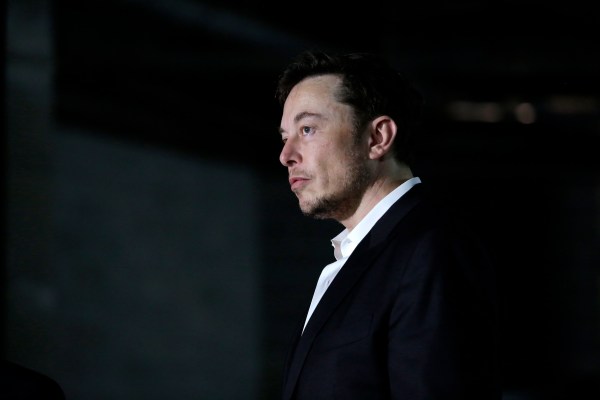Elon Musk would prefer if Tesla, which is known for its volatile share price and is among the most heavily shorted stock, were a private company, but acknowledged during an earnings call Wednesday that it wasn’t likely.
Musk can dream, can’t he?
“Unfortunately that ship had sailed,” Musk said flatly, in response to a question from Morgan Stanley analyst Adam Jonas.
Musk said Tesla as a public company was a distraction at times and then added, “I’m not sure what to do about it.”
The question came up as an increasing number of investors, known as shorts, bet that Tesla’s stock will decline. The stock is one of the largest automotive shorts globally, according to S3 Partners.
Taking the company private, a status in which Musk’s other company SpaceX remains, is a sore spot for the billionaire entrepreneur. And one that has caused legal woes and disrupted the stock price.
Musk famously tweeted in August 2018 that he was considering taking Tesla private and had “funding secured. Tesla published an email Musk sent to employees that described his rationale, only to back track a few weeks later and announce the company would remain public. That tweet got the attention of the U.S. Securities and Exchange Commission, which later accused Musk of securities fraud. The parties reached a settlement without admitting wrongdoing.
Under the settlement, Tesla agreed to add two independent directors and Musk would step down as chairman for three years. In December, Tesla added two independent directors to its board — Oracle founder, chairman and CTO Larry Ellison and Walgreens executive Kathleen Wilson-Thompson.
Despite the settlement, the relationship between Musk and the SEC remains strained. The agency requested a judge hold Musk in contempt for tweets containing allegedly material information. Musk and the SEC is expected to report to the judge Thursday as to whether they have reached a resolution.
Tesla reported Wednesday wider-than-expected loss of $702 million, or $4.10 a share, in the first quarter after disappointing delivery numbers, costs and pricing adjustments to its vehicles threw the automaker off of its profitability track.
While analysts had anticipated a loss — an adjusted loss of $1.15 a share on sales of $5.4 billion for the quarter, according to FactSet — actual losses stretched far beyond those expectations.
The loss included $188 million of non-recurring charges. When adjusted for one-time losses, Tesla lost $494 million, or $2.90 a share, compared with a loss of $3.35 a share a year ago. Tesla reported that it also incurred $67 million due to a combination of restructuring and other non-recurring charges.
